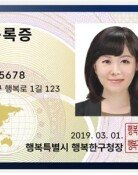Roh Govt Ordered Audit on Rice Subsidy Last Year
Roh Govt Ordered Audit on Rice Subsidy Last Year
Posted October. 20, 2008 08:44,
The Board of Audit and Inspection began auditing the rice subsidy system in March last year at the request of the then Roh Moo-hyun administration, a government official said yesterday.
This revelation is likely to spark controversy since the incumbent administrations request for an investigation might have challenged the boards independence as protected by the Constitution.
The official said, I heard the former administration recognized the need for an audit on the rice subsidy system in March last year, and asked for one.
The board included the Roh administrations request in its audit plan, which had already been scheduled on an agricultural restructuring project worth a staggering 120 trillion won (90 billion U.S. dollars).
The internal affairs watchdog is known to have advanced the start of the audit from September to April last year at Rohs request.
A preliminary investigation was conducted between March 21 and April 10 last year. Twenty-three audit personnel were deployed in the main audit between April 16 and May 15 last year.
The board also reported its findings to then senior presidential secretary for national affairs Lee Ho-cheol at his request June 15 last year before holding a presidential briefing.
Two high-ranking members of the government watchdog Ha Bok-dong and Jeong Chang-yeong were present when their agency briefed Lee, who then personally relayed the audit results to Roh.
Roh was thus probably aware of the audit results before then board secretary-general Kim Jo-won held a presidential briefing June 20 last year.
When then senior presidential secretary for national affairs Lee Ho-cheol got hold of the audit results June 15, he urged prompt countermeasures while saying the disturbing findings were hardly surprising, though he seemed to be taken aback.
Before this, the Agriculture and Forestry Ministry reported to Roh no flaws in with the rice subsidy system, saying, There were hardly any landowners who unilaterally collected the subsidy against the will of the tenant.
A board official added, After understanding the gravity of the issue, Lee organized a ministers meeting chaired by Roh five days afterwards in an attempt to address problems with the subsidy system.
With the latest findings, speculation is growing that the Roh administration might have tried to keep confidential the audits results for fear of losing public support. The Board of Audit and Inspection began auditing the rice subsidy system in March last year at the request of the then Roh Moo-hyun administration, a government official said yesterday.
This revelation is likely to spark controversy since the incumbent administrations request for an investigation might have challenged the boards independence as protected by the Constitution.
The official said, I heard the former administration recognized the need for an audit on the rice subsidy system in March last year, and asked for one.
The board included the Roh administrations request in its audit plan, which had already been scheduled on an agricultural restructuring project worth a staggering 120 trillion won (90 billion U.S. dollars).
The internal affairs watchdog is known to have advanced the start of the audit from September to April last year at Rohs request.
A preliminary investigation was conducted between March 21 and April 10 last year. Twenty-three audit personnel were deployed in the main audit between April 16 and May 15 last year.
The board also reported its findings to then senior presidential secretary for national affairs Lee Ho-cheol at his request June 15 last year before holding a presidential briefing.
Two high-ranking members of the government watchdog Ha Bok-dong and Jeong Chang-young were present when their agency briefed Lee, who then personally relayed the audit results to Roh.
Roh was thus probably aware of the audit results before then board secretary-general Kim Jo-won held a presidential briefing June 20 last year.
When then senior presidential secretary for national affairs Lee Ho-cheol got hold of the audit results June 15, he urged prompt countermeasures while saying the disturbing findings were hardly surprising, though he seemed to be taken aback.
Before this, the Agriculture and Forestry Ministry reported to Roh no flaws in with the rice subsidy system, saying, There were hardly any landowners who unilaterally collected the subsidy against the will of the tenant.
A board official added, After understanding the gravity of the issue, Lee organized a ministers meeting chaired by Roh five days afterwards in an attempt to address problems with the subsidy system.
With the latest findings, speculation is growing that the Roh administration might have tried to keep confidential the audits results for fear of losing public support.
jameshuh@donga.com leon@donga.com







